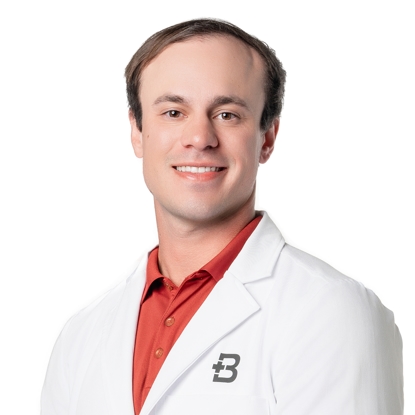The Science of Sleep

As a nation, experts say, we’re getting sleepy … verrrry sleeepyyy
Harvard Health reports that 33% of American adults don’t get enough sleep, and it’s not hard to understand why. According to the Cleveland Clinic, 70 million people in the United States struggle with sleep disorders of all kinds, and an estimated 1 billion individuals suffer from sleep apnea worldwide.
Dr. Paul Neis, board-certified otolaryngologist and sleep disorder specialist, knows better than anyone how widespread the problem is. As the medical director of the Baxter Health Sleep Disorder Center, he not only routinely diagnoses patients for a variety of conditions but has watched the medical specialty itself grow into an important center of health.
“Treating sleep disorders is really a very young specialty,” he said. “I finished my training in ENT in 1988, and at that time, there was no such thing as a CPAP machine that someone could get at home. It didn’t even exist.
“Sleep has gotten more attention for two reasons. One, we’ve learned a lot more about the risks to your general health; if you have untreated sleep apnea, the risks include heart attack, stroke, high blood pressure and the risks of being constantly sleep-deprived. The other reason it’s become so much more prominent, and why we have so much sleep apnea, is the obesity epidemic.”
It was for these reasons that the Sleep Disorder Center was founded and why it has grown from one bed to four in a relatively short period of time. Karen Ezell, who’s been on staff at Baxter Health since 1981, has seen the SDC at every phase of its development.
“We opened our first lab in 1997. We started with one bed, and we contracted a portion of those services because it’s a specialized field,” she said. “A couple of years later, they opened upstairs on the sixth floor where the location of the sleep lab is currently. We started with two beds and then about six years ago we expanded to four beds.”
A respiratory therapist by training who augmented her expertise with additional certification in sleep disorders, Ezell said the most rewarding thing about working in this field is seeing the profound relief that a proper diagnosis can bring to a patient.
“As respiratory therapists, we’re trained to look at changes in people’s breathing,” she said. “We’re also trained with CPAP therapy for acute illness, and one of the primary sleep disorders is sleep apnea. It’s kind of a hand-in-hand-type field, and I really enjoy it. It’s very rewarding to see that people’s quality of life improves with a treatment that you’ve been able to help identify and help them get treatment for.”
A diagnosis in the SDC isn’t a particularly complicated process. The patient reports to the center a couple of hours before bedtime and is attached to a variety of sensors measuring everything from brain waves and airflow to chest movements and snoring before going to sleep. The next morning, data is compiled and interpreted by Neis who recommends methods of treatment to the referring physician or nurse practitioner, who discusses the next steps with the patient.
“We are predominantly treating obstructive sleep apnea, and frequently, people will have some degree of what’s called central sleep apnea,” he said. “Because we’re a retirement area, we tend to have a little more skewing towards older age groups, but we do see the full range. I see lots of young people in their 20s, 30s and 40s who we’re doing sleep studies for sleep apnea.”
Lynda Frazer, Baxter Health’s cardiopulmonary director, said having a sleep center helps patients stay local for diagnosis and treatment.
“If we did not exist, patients would have to go to Springfield, Fayetteville or Little Rock for these services,” she said. “This is a service that a lot of your smaller hospitals do not have because they’re not associated with the doctors they need, as we are. It’s a lot to run a sleep lab; if we did not have one here, they would have to go to a larger city.”
As for Baxter Health’s future in the specialty, Frazer predicted growth.
“We are putting some things into place now to where we want to grow,” she said. “We are in the process of meeting with outlying physicians’ offices, letting them know what services we have to offer and building their patient clientele. I do believe in the next year to two years that we will expand to serve more patients.”
Like Ezell, Frazer said she finds great satisfaction in helping patients address their sleep issues, many of whom have been suffering for decades.
“It gives them an answer,” she said. “A lot of times, there are so many problems you can have with sleep and you have ailments that you tend to ignore; you think that’s just the way it’s always going to be. You think you’re always going to be tired in the morning. When you can give them a different answer for their life and the possibility of a brighter future and better quality of life, it really feels amazing.”

.png)

